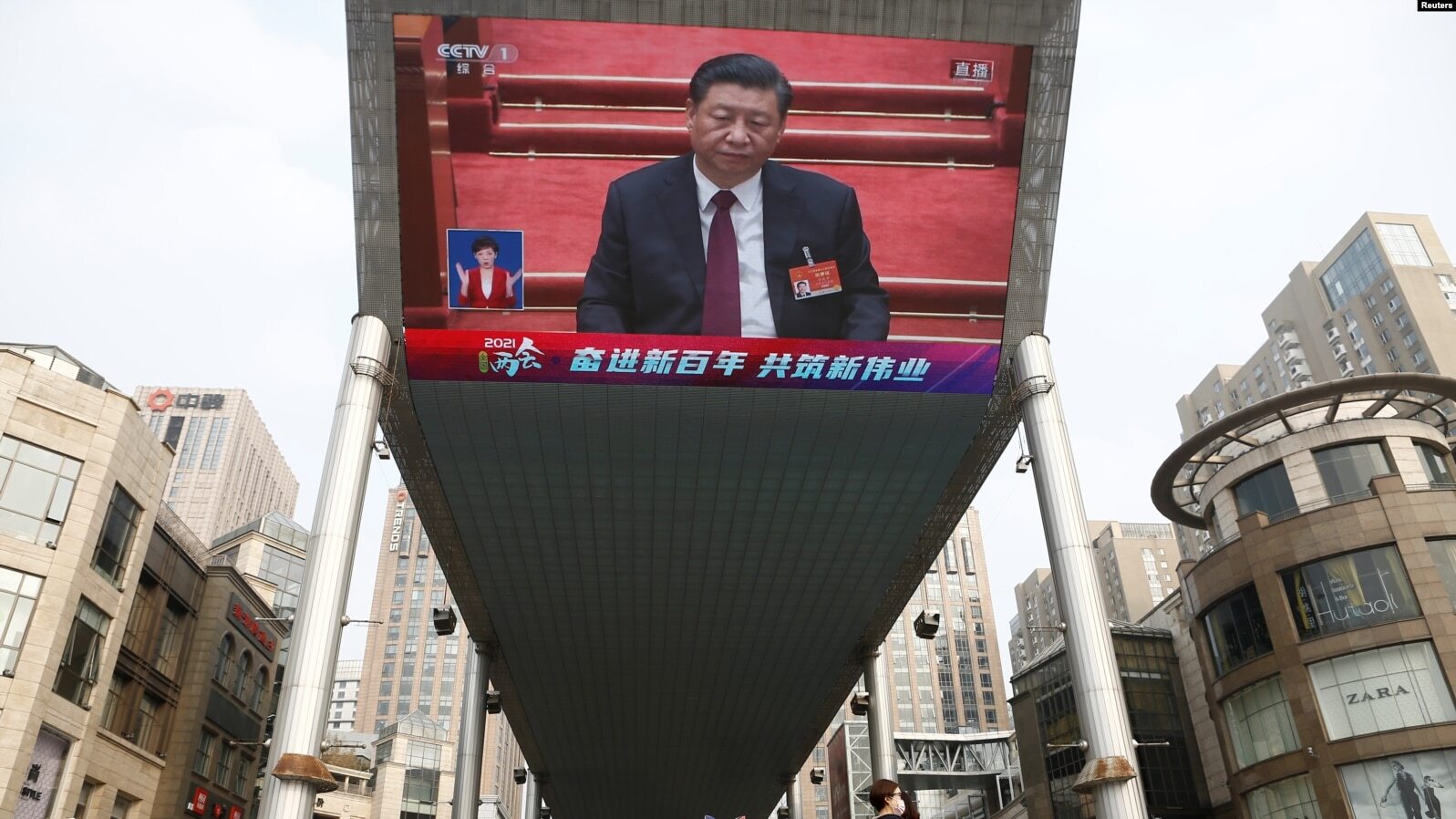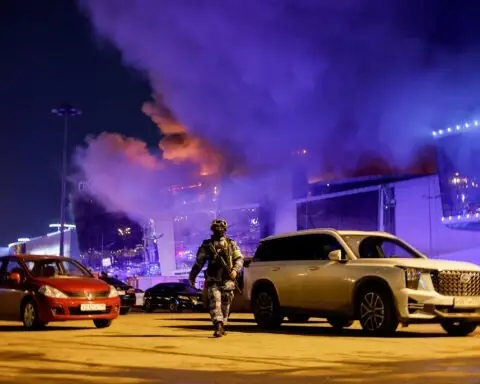Welcome To The New Era
China owned the global stage in March. The month kicked off with the annual National People’s Congress, with Beijing charting its future course, and culminated in a series of diplomatic wins and setbacks that point to China’s steady, but uneven, rise in the world.
Finding Perspective: Beijing is eager to project that it is a true global power. That was the message of the National People’s Congress, as I reported here.
Chinese President Xi Jinping and other senior officials touted China’s ascent at the political gathering, setting up declared victories at home over the coronavirus and extreme poverty as a blueprint for future engagement around the world.
Across Eurasia, Chinese diplomats have already taken to promoting these narratives and Beijing’s “vaccine diplomacy” continued to make inroads, especially in developing nations. But China’s rise is also not without its growing pains.
The pandemic is forcing Beijing to adapt its flagship Belt and Road Initiative and the country found itself in a tough diplomatic dispute after tit-for-tat sanctions with the European Union and other Western nations over China’s rights abuses in Xinjiang.
Why It Matters: China is still learning how to be a world leader, but it is becoming increasingly confident in its moves.
This means that Beijing’s rivalry with the West, particularly the United States, is set to intensify, as highlighted by the fiery exchange between high-ranking U.S. and Chinese officials in Alaska.
As I discussed in an article in late March, Eurasia won’t be the focal point of superpower tensions, but it will be far from immune.
Expert Corner: Just How Close Are Beijing And Moscow?
Readers asked: “Relations between China and Russia are about to enter a new phase, but where exactly is this relationship going?”
- “Beijing and Moscow increasingly need each other, but Russia needs China more than the other way around — so in the future, China can use its growing leverage to get concessions from Russia on commercial deals or some policy issues that don’t cross the Kremlin’s red lines.” — Alexander Gabuev, senior fellow at the Moscow Carnegie Center
- “There are real fissures between Russia and China, but the persistence of the factors driving their partnership mean they will challenge the United States and Europe for the foreseeable future. Their alignment increases the risks that both countries pose. Together, they are a more potent force that can oppose both the United States and Europe.” — Andrea Kendall-Taylor, senior fellow at the Center for a New American Security and former senior U.S. intelligence analyst
- “A full alliance between China and Russia is not coming, but both Beijing and Moscow feel united in their confrontation with the United States. Despite potential areas of limited confrontation in Central Asia or growing competition in the arms trade, the reasons to work closer and minimize tensions so far outweigh concerns for future disagreements.” — Anton Barbashin, editorial director at Riddle Russia
Three More Stories From Eurasia
1. What’s In A Deal?
Beijing inked a long-rumored 25-year strategic pact with Iran on March 27 that could greatly expand its influence in the Middle East and set China up to reap a diplomatic boost if the nuclear deal with Tehran and Washington can be revived.
Digging Deeper: China has its sights on the future. Part of the motivation of the agreement is to reassure Iran as the Biden administration looks to rekindle nuclear talks with Tehran.
The 25-year pact itself outlines broad economic, military, and political cooperation, but there is plenty of reason to be skeptical about it, as I explored here in my article.
There have been reports of the deal being worth $400 billion, but no figure has been confirmed. A draft seen by RFE/RL doesn’t mention any amount. Future investment likely won’t be possible unless Tehran returns to the nuclear deal and sanctions placed on Iran by the Trump administration are lifted.
The View From Home: China also has a spotty track record of not following through on its deals with Iran. Moreover, the Iranian public remains highly suspicious of the agreement.
My colleague Golnaz Esfandiari looked at Tehran’s efforts to reassure the public after it signed the pact with Beijing.
2. Buyer’s Remorse
Dritan Abazovic, Montenegro’s deputy prime minister, made headlines on March 26 when he said that the EU should help the small Balkan country repay a $1.18 billion loan to the Export-Import Bank of China for the construction of a highway.
The Tightrope: Abazovic has since tried to walk back his remarks, my colleagues at RFE/RL’s Balkan Service told me, after the comments attracted international attention to the massive debt Montenegro owes to China.
The first tranche of repayment for the 2014 loan is reportedly due this year and the road is still under construction.
3. Broken But Not Dead
Government pressure in Kazakhstan has nearly silenced the guerrilla activism that turned the country into an unlikely window on China’s human rights abuses, Aigerim Toleukhanova from RFE/RL’s Kazakh Service and I reported in an article in early April.
Demonstrations against the internment of Uyghurs, ethnic Kazakhs, and other Muslim minorities in neighboring Xinjiang are ongoing, with a small but persistent picket outside the Chinese Consulate in Almaty.
The protests, however, are a far cry from the activism in the country over the issue in 2018 and 2019, which has been effectively quelled by a Kazakh government eager to preserve ties with Beijing.
The Human Toll: Perhaps the individual toll of the camps is best exemplified by Qalida Akytkhan, a 67-year-old grandmother whose three sons are interned in camps in Xinjiang.
“At night, I take a photo of my three sons and hold it to my chest,” she said during an interview. “I can’t sleep without it. I put it next to my head on my pillow. Sometimes I can’t fall asleep until 5 a.m.”
Across The Supercontinent
Shifting Course: Ukraine plans to nationalize Motor Sich, an aerospace manufacturer that is majority-owned by Chinese companies, due to its strategic importance to national defense. My colleague Ievgen Solonyna from RFE/RL’s Ukrainian Service has a good breakdown of the saga (in Ukrainian.)
Cooled Off: Despite warm public rhetoric of close ties, Beijing is keeping its distance from the embattled regime of Belarus’s Alyaksandr Lukashenka, as I focus on here in my article.
On The List: Ilhan Kyuchyuk, an ethnic Turkish Bulgarian deputy at the European Parliament, was among those targeted by Beijing in response to sanctions brought by Brussels over Xinjiang. Kyuchyuk told RFE/RL’s Bulgarian Service that he believes he was included because he helped an imprisoned ethnic Uyghur economist receive the Sakharov Prize for Freedom of Thought.
Diplomatic Booster: Budapest approved emergency use of China’s CanSino Biologics coronavirus vaccine on March 22, RFE/RL’s Hungarian Service reported.
It is the first EU country to do so. Hungary was already an outlier, granting use to Russia’s Sputnik V and China’s Sinopharm, despite neither being approved by Brussels.
One Thing To Watch This Month
The United Nations has begun negotiations with China for a visit “without restrictions” to Xinjiang to see how Uyghur and other Muslim minorities are being treated in the region, according to Secretary-General Antonio Guterres. Negotiations will likely be slow. In the meantime, expect more efforts from Beijing to try and change the global narrative around the internment camps.





